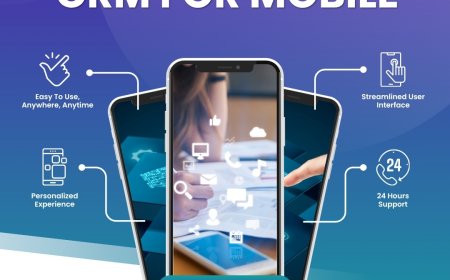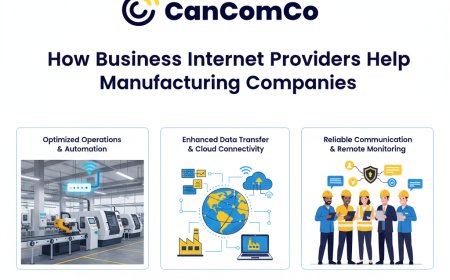How to Switch Careers in Fort Worth
How to Switch Careers in Fort Worth Switching careers is one of the most transformative decisions a professional can make. In Fort Worth, a city experiencing rapid economic growth, diverse industry expansion, and a growing demand for skilled workers, the opportunity to pivot into a new field has never been more accessible. Whether you’re a teacher looking to enter tech, a retail manager aiming for
How to Switch Careers in Fort Worth
Switching careers is one of the most transformative decisions a professional can make. In Fort Worth, a city experiencing rapid economic growth, diverse industry expansion, and a growing demand for skilled workers, the opportunity to pivot into a new field has never been more accessible. Whether you’re a teacher looking to enter tech, a retail manager aiming for healthcare, or a construction worker seeking a more sustainable long-term path, Fort Worth offers the infrastructure, education networks, and job market momentum to support a successful career transition.
This guide provides a comprehensive, step-by-step roadmap tailored specifically to professionals in the Fort Worth metroplex. From assessing your transferable skills to landing your first role in a new industry, we’ll walk you through every phase of the process—backed by local resources, real-life success stories, and data-driven insights. By the end of this guide, you’ll have a clear, actionable plan to navigate your career change with confidence, resilience, and strategic precision.
Step-by-Step Guide
Step 1: Conduct a Self-Assessment
Before you begin your career transition, take time to understand who you are as a professional and what you truly want. Many people rush into new roles without clarifying their motivations, leading to dissatisfaction even after the switch. Start by answering these key questions:
- What aspects of your current job do you enjoy—or dislike?
- What skills do you naturally excel at, even outside of work?
- What kind of work environment do you thrive in: fast-paced, structured, remote, collaborative?
- What are your non-negotiables? (e.g., salary range, work-life balance, benefits, location)
Use tools like the CliftonStrengths Assessment or Myers-Briggs Type Indicator to gain deeper insight into your personality and natural inclinations. Fort Worth residents can also access free career coaching through the Workforce Solutions Tarrant center, which offers personalized assessments and career mapping sessions.
Be honest with yourself. If you’re leaving your current role because of burnout, don’t assume a new job will automatically fix it. Identify the root cause—was it the industry, the company culture, the lack of growth, or the daily tasks? Your new career should address those pain points.
Step 2: Identify High-Demand Industries in Fort Worth
Fort Worth’s economy is diversifying rapidly. While traditionally known for aviation, defense, and manufacturing, the region now boasts thriving sectors in healthcare, logistics, cybersecurity, renewable energy, and technology. Researching which industries are hiring—and where the growth projections are—will help you align your transition with market demand.
According to the Fort Worth Chamber of Commerce and Tarrant County Workforce Development Board, the top growing industries in 2024 include:
- Healthcare and Life Sciences: With major employers like Texas Health Resources, JPS Health Network, and the UT Southwestern Medical Center expanding their Fort Worth campuses, roles in nursing, medical coding, radiology tech, and health IT are in high demand.
- Logistics and Supply Chain: Fort Worth is a national freight hub due to its proximity to I-35, I-20, and the AllianceTexas logistics center. Jobs in warehouse management, supply chain analytics, and transportation coordination are growing rapidly.
- Cybersecurity and IT: Companies like Lockheed Martin, Raytheon, and a growing number of startups are investing in local cybersecurity infrastructure. Demand for entry-level analysts, SOC technicians, and IT support roles is up 27% YoY.
- Renewable Energy: Wind and solar energy companies are establishing operations in North Texas. Roles in installation, project coordination, and energy auditing are expanding.
- Advanced Manufacturing and Robotics: Companies like Boeing, General Dynamics, and a wave of automation-focused startups are seeking skilled technicians and engineers.
Focus your research on industries that align with your interests and skills. Don’t just chase salary—pursue fields where your background gives you a competitive edge.
Step 3: Map Your Transferable Skills
One of the biggest myths about switching careers is that you need “relevant experience.” In reality, most roles value transferable skills more than you think. Here’s how to identify yours:
Take your current job description and break it down into core competencies:
- Communication: Did you lead team meetings, write reports, or train new staff? These skills translate to client-facing roles in tech, healthcare, or education.
- Problem-Solving: Whether you resolved customer complaints or optimized inventory flow, your ability to diagnose and fix issues is valuable in any field.
- Project Management: Organizing events, managing timelines, coordinating vendors—these are all project management skills applicable to IT, marketing, and construction.
- Leadership: Supervising staff, mentoring peers, or leading volunteer initiatives all demonstrate leadership potential.
- Adaptability: If you’ve worked in fast-changing environments (retail, hospitality, military), you already have resilience that employers seek.
For example, a former retail manager transitioning into healthcare administration can highlight their experience managing schedules, handling budgets, training teams, and resolving conflicts—all directly applicable to medical office operations.
Create a “Skills Translation Table” that matches your past roles with keywords from job postings in your target industry. This will help you tailor your resume and interview responses effectively.
Step 4: Choose a Target Role and Research the Path
Now that you’ve identified your target industry, narrow it down to one or two specific roles. Avoid being too broad. Instead of “I want to work in tech,” try: “I want to become a Junior Cybersecurity Analyst” or “I want to become a Certified Medical Coder.”
Once you’ve chosen a role, research the standard entry path:
- What certifications or licenses are required?
- What education or training programs are preferred?
- What does a typical career ladder look like?
- What’s the average starting salary in Fort Worth?
Use resources like LinkedIn Salary Insights, Bureau of Labor Statistics (BLS), and local job boards like FortWorth.com Jobs or Indeed.com filtered for Fort Worth. Look at 10–15 job postings for your target role and note recurring requirements.
For example, if you’re targeting a Medical Coding role, you’ll likely need:
- Certified Professional Coder (CPC) credential from AAPC
- Basic understanding of ICD-10 and CPT coding systems
- Experience with electronic health records (EHR)
Many of these requirements can be met through short-term, affordable training programs—some as short as 6–12 weeks.
Step 5: Enroll in Training or Certification Programs
Fort Worth offers a wide range of affordable, high-quality training options, many of which are subsidized or offered for free through workforce development programs.
Top Local Training Providers:
- Tarrant County College (TCC): Offers short-term certificates in IT, healthcare, logistics, and skilled trades. Many programs are eligible for Pell Grants or Workforce Innovation and Opportunity Act (WIOA) funding.
- Workforce Solutions Tarrant: Provides free career training in high-demand fields. Programs include CompTIA A+ prep, Certified Nursing Assistant (CNA), and Logistics Coordinator certification.
- Fort Worth Independent School District Adult Education: Offers GED, ESL, and career readiness courses—including IT fundamentals and medical terminology.
- General Assembly Fort Worth: Offers bootcamps in web development, data analytics, and UX/UI design (some scholarships available).
- Online Platforms: Coursera, Udemy, and edX offer affordable courses in cybersecurity, project management, and data analysis. Many are recognized by local employers.
When selecting a program, prioritize those that:
- Offer industry-recognized certifications
- Include hands-on projects or internships
- Have strong employer partnerships
- Provide job placement assistance
Many programs in Fort Worth partner directly with local employers. For example, TCC’s IT program has a pipeline with Lockheed Martin, and their healthcare certifications are accepted by JPS Health Network.
Step 6: Build Experience Through Volunteering, Internships, or Freelancing
Employers want to see proof you can do the job—even if you’re transitioning. If you lack direct experience, create it.
Options in Fort Worth:
- Volunteer: Offer to help a nonprofit with their website, social media, or data entry. Many local charities need IT support, marketing help, or administrative assistance.
- Internships: Some companies offer unpaid or stipend-based internships for career changers. Check with TCC’s Career Services or LinkedIn for openings.
- Freelance Projects: Use Upwork or Fiverr to take on small gigs. Build a portfolio of completed work—even if it’s low-paying at first.
- Shadowing: Reach out to professionals in your target field and ask if you can shadow them for a day. Most people are willing to help if you’re respectful and prepared.
For example, a former teacher switching to instructional design might create sample e-learning modules for free on Canva and share them on a personal portfolio website. A former mechanic moving into renewable energy could volunteer with a local solar installation nonprofit to gain hands-on experience.
Step 7: Revamp Your Resume and LinkedIn Profile
Your resume must tell a compelling story—not just list past jobs. Recruiters spend less than 7 seconds scanning a resume. You need to make your career switch make sense immediately.
Resume Tips:
- Use a hybrid format: Combine chronological employment history with a skills-based summary at the top.
- Start with a Professional Summary: “Results-driven professional with 8 years in retail management transitioning into healthcare administration. Proven expertise in team leadership, compliance, and process optimization. Certified Medical Coder (CPC) with hands-on EHR experience.”
- Reframe your past roles using keywords from your target industry. Instead of “Managed store inventory,” write “Optimized supply chain operations, reducing waste by 18% through data-driven inventory controls.”
- Include certifications, training, and volunteer work under a dedicated “Professional Development” section.
LinkedIn Optimization:
- Update your headline to reflect your target role: “Aspiring Cybersecurity Analyst | CompTIA Security+ Certified | Fort Worth, TX”
- Write a compelling “About” section that explains your transition story honestly and passionately.
- Join local Fort Worth groups like “Fort Worth Tech Professionals,” “Tarrant County Healthcare Network,” or “Women in Logistics Texas.”
- Post about what you’re learning. Share a short video or article about your certification journey. This signals initiative to recruiters.
Step 8: Network Strategically in Fort Worth
Fort Worth is a tight-knit professional community. Many jobs are filled through referrals, not job boards. Networking isn’t about collecting business cards—it’s about building authentic relationships.
Effective Networking Tactics:
- Attend local events: Fort Worth Tech Meetups, Tarrant County Chamber of Commerce mixers, Fort Worth Health Innovation Forum.
- Reach out to alumni from your training program. Most schools have LinkedIn groups.
- Use LinkedIn to message professionals in your target role: “Hi Sarah, I’m transitioning into cybersecurity and noticed your background at Raytheon. I’d love to learn how you made the jump from your previous role. Would you have 15 minutes for a quick coffee or Zoom chat?”
- Volunteer at industry events. Offering to help set up or register attendees puts you in front of decision-makers.
- Follow local employers on social media. Engage with their posts. Comment thoughtfully. This builds visibility.
Remember: People want to help. But you must make it easy for them. Be specific, respectful of their time, and always follow up with a thank-you note.
Step 9: Prepare for Interviews with a Transition Narrative
Interviewers will likely ask: “Why are you changing careers?” Your answer must be confident, concise, and compelling.
Use the STAR method (Situation, Task, Action, Result) to frame your story:
“I spent 7 years managing customer service teams in retail. While I enjoyed helping people, I realized I was most energized by troubleshooting complex systems and improving workflows. That’s when I started taking online courses in IT support. I completed my CompTIA A+ certification and volunteered to help a local nonprofit upgrade their computer systems. I now understand how much I enjoy solving technical problems and supporting teams through technology. That’s why I’m here—I want to build a long-term career in IT support, and I’m ready to bring my strong communication skills and work ethic to your team.”
Practice this narrative until it feels natural. Record yourself. Ask a friend to role-play the interview.
Also, anticipate objections:
- “You don’t have direct experience.” → “While my title was different, I’ve built the exact skills you need through certification, hands-on projects, and volunteer work. I’ve already proven I can learn quickly and apply knowledge.”
- “Won’t you get bored?” → “I’m not looking for a change to escape—I’m looking to grow. I’ve researched this field thoroughly, and I’m excited about the long-term challenges and opportunities.”
Step 10: Negotiate Your First Role and Plan for Growth
Your first role in a new field may not pay as much as your previous job. That’s okay. Focus on growth potential, learning opportunities, and company culture.
When negotiating:
- Research salary ranges for entry-level roles in Fort Worth using Payscale and Glassdoor.
- Emphasize your transferable skills and eagerness to learn.
- Ask about tuition reimbursement, certification support, or mentorship programs.
- Don’t accept a role that doesn’t offer clear advancement paths.
Once you land the job, set 6-month and 12-month goals:
- Complete another certification
- Lead a small project
- Shadow a senior team member
- Join a professional association
Continual learning is your greatest asset. The goal isn’t just to switch careers—it’s to build a sustainable, fulfilling long-term path.
Best Practices
Practice Patience and Persistence
Switching careers takes time. It’s not a sprint—it’s a marathon. You may send out 50 resumes before getting one interview. That’s normal. Don’t get discouraged. Track your progress. Celebrate small wins: completing a course, making a new connection, refining your resume.
Build a Personal Brand
Your personal brand is how people perceive you professionally. In Fort Worth, where relationships matter, your brand should reflect professionalism, curiosity, and reliability.
Start a simple website or LinkedIn portfolio showcasing:
- Your transition story
- Certifications
- Projects you’ve completed
- Testimonials from mentors or volunteers
Even a free WordPress or Canva site can make you stand out.
Stay Updated on Industry Trends
Subscribe to local business publications like the Fort Worth Business Press and Texas Monthly Business. Follow industry leaders on LinkedIn. Set Google Alerts for terms like “Fort Worth tech jobs” or “healthcare careers Tarrant County.”
Manage Your Finances During the Transition
Training programs, certifications, and reduced income during the transition can strain your budget. Create a 6-month financial plan:
- Build an emergency fund if possible
- Apply for WIOA funding or Pell Grants
- Consider part-time work while studying
- Use free resources like public libraries for internet and computer access
Seek Mentorship
Find someone who has made a similar switch. Many professionals in Fort Worth are happy to guide newcomers. Reach out via LinkedIn or through your training program’s alumni network. A mentor can offer advice, review your materials, and even refer you to job openings.
Don’t Underestimate Soft Skills
Employers in Fort Worth value reliability, communication, and work ethic just as much as technical skills. If you’re known as someone who shows up on time, follows through, and stays positive—you’ll rise quickly, even in a competitive field.
Tools and Resources
Free Career Assessment Tools
- Myers-Briggs Type Indicator (MBTI) – Understand your personality type and ideal work environments
- CliftonStrengths – Identify your top 5 talents
- O*NET Interest Profiler – Match your interests to careers
Local Training and Education
- Tarrant County College – www.tccd.edu
- Workforce Solutions Tarrant – www.workforcesolutions.com
- Fort Worth ISD Adult Education – www.fwisd.org/adulteducation
- General Assembly Fort Worth – generalassemb.ly
Job Boards and Networking Platforms
- Indeed.com – Filter by Fort Worth, TX
- LinkedIn – Join local groups and set job alerts
- FortWorth.com Jobs – Local employer listings
- USAJobs.gov – For federal positions at AllianceTexas or DFW Airport
Professional Associations
- AAPC (Medical Coding) – www.aapc.com
- CompTIA – www.comptia.org
- Project Management Institute (PMI) – North Texas Chapter – www.pmi.org
- Texas Society of Certified Public Accountants (TSCPA) – For finance transitions
Financial Aid and Support
- WIOA Grants – Free training for eligible individuals
- Pell Grants – For TCC and other accredited programs
- Fort Worth Public Library – Free access to LinkedIn Learning, Coursera, and job search tools
Real Examples
Example 1: From Retail Manager to Medical Coder
Jamila, 34, worked as a store manager at a national retail chain for 8 years. She loved organizing teams but felt unfulfilled by repetitive sales targets. After researching healthcare careers, she discovered medical coding—a stable, remote-friendly role with strong demand in Fort Worth.
She enrolled in TCC’s 12-week Medical Coding Certificate program through a WIOA grant. While studying, she volunteered to help a local clinic digitize patient records. She completed her CPC certification and applied to 15 jobs. Within 3 months, she landed a remote position with a healthcare billing company in North Richland Hills. Her salary increased by 42%, and she now works 4 days a week with full benefits.
Example 2: From Military Veteran to Cybersecurity Analyst
David, 29, served 6 years in the U.S. Army as a communications specialist. After discharge, he moved to Fort Worth and wanted a civilian career that used his technical skills. He learned about the growing cybersecurity sector and enrolled in TCC’s Cybersecurity Fundamentals program.
He earned his CompTIA Security+ certification and completed a 6-week internship with a local IT firm through a veteran-focused workforce program. He built a portfolio of simulated network security tasks and shared them on LinkedIn. Within 4 months, he was hired as a Junior SOC Analyst at a defense contractor near AllianceTexas. He now mentors other veterans transitioning into tech.
Example 3: From Teacher to Instructional Designer
Monica, 41, taught high school English for 15 years. She loved creating lesson plans but felt drained by administrative pressures. She discovered instructional design—the field of designing digital learning experiences—and took an online course on Coursera.
She built 3 sample e-learning modules using Canva and Articulate 360, then volunteered to redesign the website training for a local nonprofit. She joined the Fort Worth Learning Designers Meetup and connected with a hiring manager at a health tech startup. She landed her first role as an Associate Instructional Designer with a 25% salary increase and flexible hours.
FAQs
How long does it typically take to switch careers in Fort Worth?
Most people complete their transition in 6–12 months, depending on the field. High-demand roles like medical coding or IT support can be entered in as little as 3–6 months with focused training. More complex fields like nursing or engineering may take 1–2 years.
Can I switch careers without a degree?
Absolutely. Many high-demand roles in Fort Worth—such as medical coding, cybersecurity analyst, logistics coordinator, and wind tech installer—only require certifications or short-term training. Employers prioritize skills and credentials over degrees in these fields.
What’s the average salary increase when switching careers in Fort Worth?
It varies. Some transitions (e.g., retail to healthcare) result in a 20–40% salary increase. Others (e.g., teaching to tech) may start slightly lower but offer faster long-term growth. On average, career changers in Fort Worth see a 15–35% increase in their first year in a new field.
Are there programs that pay you to train?
Yes. Workforce Solutions Tarrant offers stipends and tuition coverage for eligible individuals through WIOA funding. Tarrant County College also offers scholarships and payment plans. Some employers even pay for your training if you commit to working for them afterward.
What if I’m over 40? Is it too late to switch careers?
Not at all. Fort Worth has a growing number of professionals over 40 making successful career changes. Employers value maturity, reliability, and life experience. Many training programs specifically cater to adult learners. Your experience is an asset—not a liability.
How do I know if I’m ready to make the switch?
You’re ready when you’ve:
- Researched the field thoroughly
- Completed at least one certification or training
- Connected with 3–5 professionals in the field
- Created a tangible sample of your work (portfolio, project, volunteer experience)
- Have a financial plan in place
What if I fail or don’t get a job right away?
Failure is part of the process. Use feedback to improve. If you’re not getting interviews, revisit your resume and LinkedIn. If you’re getting interviews but no offers, practice your storytelling. Keep applying. Keep learning. Every “no” gets you closer to a “yes.”
Conclusion
Switching careers in Fort Worth is not just possible—it’s increasingly common and supported by a robust ecosystem of education, training, and employer partnerships. The city’s economic diversity, growing industries, and accessible workforce programs create a unique environment where professionals at any stage of life can reinvent themselves.
This guide has provided you with a clear, actionable roadmap—from self-assessment to landing your first role in a new field. The key is not perfection, but progress. You don’t need to know everything before you start. You just need to take the first step: enroll in a course, reach out to a mentor, update your resume, or attend a local networking event.
Remember: Every expert was once a beginner. Every successful career switcher once felt uncertain. What sets them apart isn’t talent or luck—it’s persistence, strategy, and the courage to begin.
Fort Worth is waiting for you. Your next chapter isn’t a dream—it’s a plan. And now, you have the tools to write it.

























